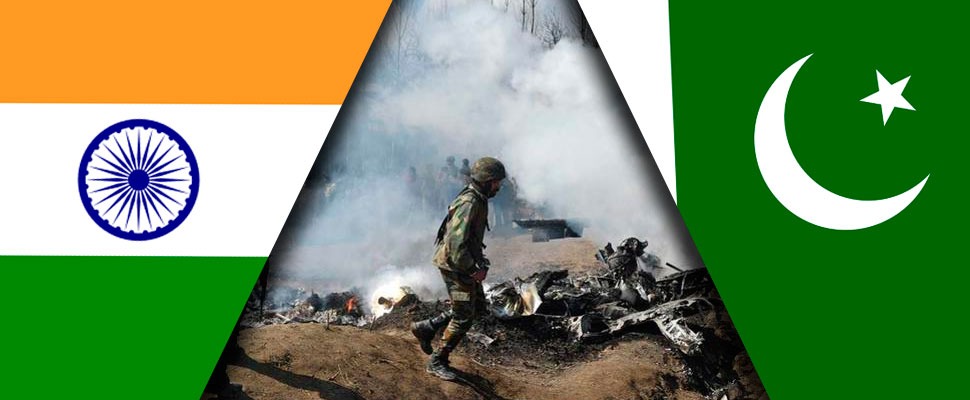Since the 2008 Mumbai carnage India has been blaming Pakistan of sponsoring terrorism inside its territory and in the Indian Illegally Occupied Kashmir (IIOJK). While these claims were not often backed by factual evidence, the bilateral relations between both states have been adversely affected by this issue. Pakistan is a state that itself has been fighting the war of terrorism inside its territory for more than two decades now. On top of it has faced international criticism and scrutiny over its unwavering commitment to fight the menace of terrorism, an example can be given of the FATF ranking that placed Pakistan in the grey list till 2022, now Pakistan is part of the white list.
The Indian stance after Uri (2016), Pulwama (2019) and now Pahalgam’s terrorist attacks (2025) in the IIOJK has been maintained. Without providing any factual evidence of Pakistan’s involvement in orchestrating Pahalgam, India rejecting its call for neutral probe, suspended the Indus Water Treaty (IWT) and launched air attacks on Pakistan under the pretext of Operation Sindoor on 7 May . The attacks on multiple locations inside Pakistan killed 31 innocent civilians including children and women. The aerial combat between Pakistan Airforce PAF and the Indian Airforce IAF resulted in the downing of five Indian jets, including three Rafales, one MIG-29, and one Su30 MKI.
Pakistan showed restraint till 9 May when India targeted Lahore and Rawalpindi’s airspace with Unmanned Aerial Vehicles (UAVs) Kamikaze and Harop. Pakistan in exercising its legitimate right of self-defence under the Chapter VII article 51 of United Nations Charter, retaliated and targeted Indian military bases. The operation Bunyan-um-Marsoos on 10 May, exclusively targeted military installations, leading to the loss of the BrahMos site and S-400 air defence system. This military escalation by both sides led to the interference of US and bring about a ceasefire between both parties.
Pakistan has shown resolve and strength in this current modern hi-tech warfare against India. Although this conflict has highlighted conventional military asymmetry between India and Pakistan, the efficiency, quality and technological feat has given an edge to Pakistani forces over India. Pakistan dominated the escalation cycle by showing immense determination and retaliating only to give a befitting response. This has set a new normal in terms of the use of technology in modern warfare. The outcome of the future wars will be decided by the quality, not the quantity of the conventional arsenal of states. The capability of the soldiers behind the machines will decide the outcome of such a crisis.
Pakistan emerged triumphant at various levels. Pakistan’s reputation has been cleared as Indian charges of sponsoring terrorism has proven to be wrong. At the international level, regardless of the rigorous information warfare conducted by Indian media channels against Pakistan, its image has been elevated. Pakistan must use this opportunity to highlight its role and efforts in combating terrorism in the region.
Pak-China strategic partnership has been enhanced, as the Chinese technology has been tested for the first time in real combat by the PAF. This is going to open the doors of international buyers for Chinese PL-15 missiles and for PAF to provide trainings for joint exercises with like-minded states. China has emerged as a great force in the world order, which will be given its due weight. This limited conflict also proved that Pakistan has achieved a milestone in the usage of cyber technology in modern warfare.
For Pakistan and its people, there have been several internal benefits. In the aftermath of Indian aggression against Pakistani civilians, there has been an increased sense of unity among all political parties. The civil-military relations have seen a re-birth, as there has been a greater respect for the armed forces of Pakistan.
The DGMO meeting between Pakistan and India will discuss in detail the terms of the ceasefire between the two states. This provides Pakistan the chance to work towards maintaining the status quo over the IWT by calling out its suspension by India to be unlawful. The Kashmir issue has once again been put on the table as an international dispute, regardless of Indian efforts to internalize it. Pakistan must utilize this opportunity to highlight the disputes over Siachen and Sir Creek.
There is a process for negotiations, the ceasefire will be ratified by both states for the talks to succeed. Both parties will have to agree on a common agenda for the ceasefire. All the points of contention will be discussed among the two parties. It will be a long-drawn process, and each issue will be discussed at expert level. President Trump has said he will be going to help in achieving the end goals and bringing peace in the region. However, Pakistan should not attach any hopes as this temporary pause is not going to change the US attitude towards Pakistan because of its rivalry with China. Chinese threat will maintain the Indo-US strategic partnership and that can not be shaken. This is the right time for Pakistan to pressurize the regional powers to stand up against India and form an alliance with Bangladesh, Sri Lanka and the Maldives. Instead of running towards the US, Pakistan must strengthen its regional alliances and fill the gap left by India. Pakistan wants self-respecting relations with the US, it will not play in the hands of the US against China, because China is a trusted and all weather friend of Pakistan.
This article was published in another form at https://stratheia.com/pakistan-snatching-victory-from-an-obstinate-neighbour/
Dr Anum Riaz is Associate Director Research at the Center for International Strategic Studies, Islamabad.

